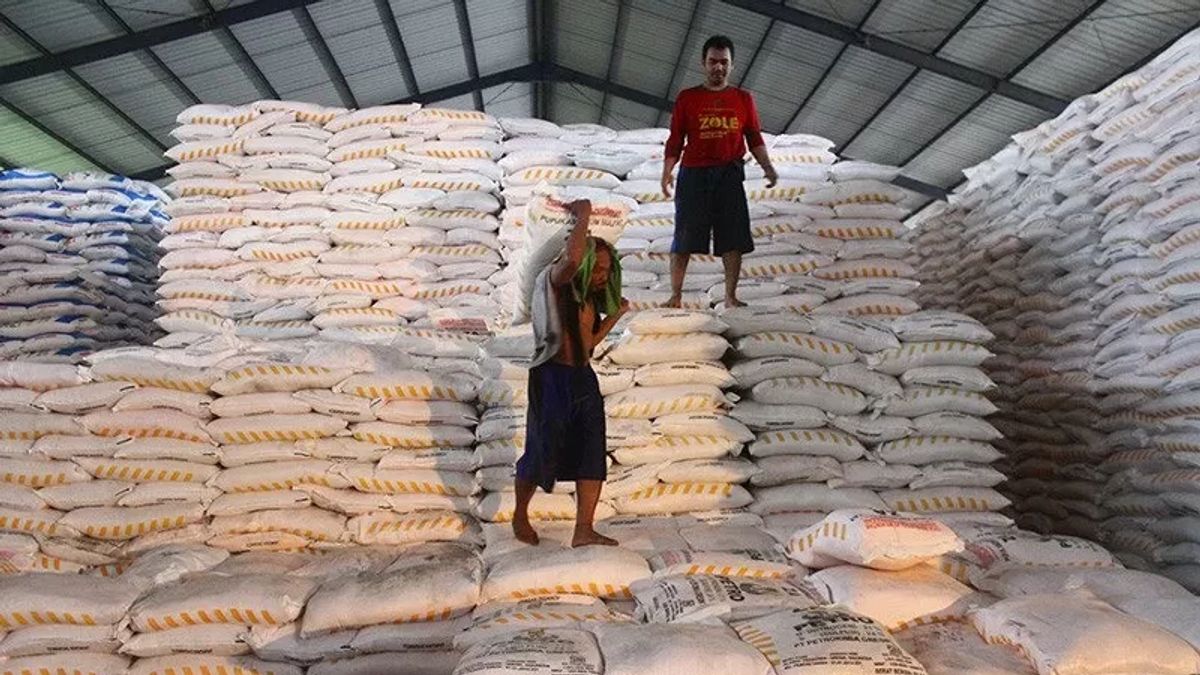Chairman of Commission IV of the DPR, Sub-Department asked PT Pupuk Indonesia (Persero) to build 1,000 commercial or non-subsidized kiosks throughout Indonesia. The goal is to overcome the problem of availability, especially for farmers who do not receive subsidized fertilizer allocations.
Furthermore, Sudin said his request was based on the many complaints from farmers regarding the scarcity of fertilizers.
"Farmers complain of rare fertilizers, so I order Pupuk Indonesia and its subsidiaries to build 1,000 commercial or non-subsidized fertilizer kiosks. So if the subsidies don't get it, they can buy non-subsidized ones," he said at the DPR Building, Parliament Complex, Senayan, Monday, March 20.
Actually, said the Sub-Department, the production capacity of PT Pupuk Indonesia (Persero) has met the subsidized fertilizer needs set by the government every year. In 2023, the government will determine the allocation of subsidized fertilizers of around 7.8 million tons.
Regarding the problem with the availability of subsidized fertilizers, said the Sub-Department, this is because the allocation determined is not proportional to the needs proposed by farmers in the Government Data Collection system through the Ministry of Agriculture (Kementan).
"The demand for fertilizer from farmers throughout Indonesia is approximately 23 million tons, but the government is only ready to subsidize fertilizer as much as 9 million tons, so there is a commotion," he said.
On the same occasion, Pupuk Indonesia Marketing Director Gusrizal said that the production capacity of fertilizer products owned by Pupuk Indonesia Group was able to meet the subsidized fertilizer needs according to the allocation set by the Government.
Meanwhile, from the production capacity of Pupuk Indonesia, the total reaches 13.9 million tons, consisting of 8.8 million tons of urea fertilizer, 3.8 million tons of NPK fertilizer, and the remaining about 1.3 million tons of other types.
"So if our area is more than sufficient, our production is 8.5 million tons, subsidies are only around 4.7 million tons, so we have an excess of 3.8 million tons, while domestic needs are estimated to be only 6.5 million tons, so we are still more than 2.5 million tons," said Gusrizal.
As for the NPK fertilizer, continued Gusrizal, the production capacity of Pupuk Indonesia has also fulfilled and even has a surplus of around 300,000 tons. This is because the production capacity is around 3.5 million tons from the subsidized NPK needs of around 3.2 million tons.
"Our capacity is only 3.5 million tons, subsidies are 3.2 million tons, so we have 300,000 tons (surplus)," he said.
The English, Chinese, Japanese, Arabic, and French versions are automatically generated by the AI. So there may still be inaccuracies in translating, please always see Indonesian as our main language. (system supported by DigitalSiber.id)










